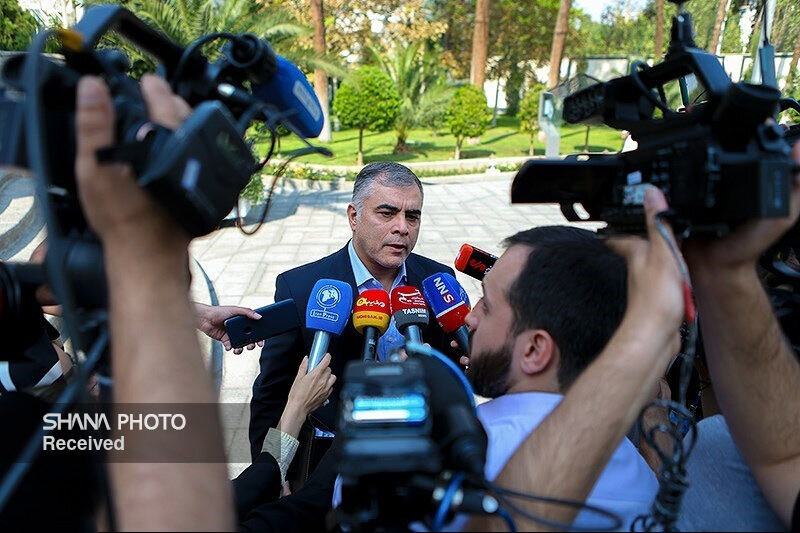Regarding importing gas from Turkmenistan, Paknejad said that currently, we do not import natural gas from the neighboring country but preliminary negotiations have been started to do so, adding: We have no debts regarding gas imports from Turkmenistan.
Paknejad stated that during cold days, 80% of the country's total gas consumption occurs in the residential sector, adding that we have always imported petroleum products, both gasoline, and diesel, as needed, and imports continue from both the north and south of the country.
He pointed out the measures taken by the Ministry of Petroleum to prevent natural gas shortages during the cold season, stating: In certain cold days, as much as 80% of the country’s total natural gas production is consumed in the residential sector, and there is a readiness to use other alternative fuels to ensure that other sectors face minimal difficulties.
In response to a question about plans to counteract intensified oil sanctions following Trump's presidency, Paknejad said: We do not differentiate between Biden or Trump in dealing with sanctions, and considering the tested strategies and valuable experiences in this area, we do not have serious concerns. He continued: Oil industry employees will take necessary measures according to potential situations and limitations, and through our actions, we will prevent any issues that might worry the public.
The Minister of Petroleum welcomed private sector investment in the establishment of small refineries, stating that creating these small refineries, also known as mini-refineries, is among the policies we seek to implement, and we welcome private sector investment in this area as well.

SHANA (Tehran) - Iranian Minister of Petroleum Mohsen Paknejad has said that the price of super gasoline will be determined based on the cost of imports.
Speaking today on the sidelines of a cabinet meeting, the Minister said: Importing high-quality gasoline is a social demand, and those who own luxury imported vehicles expect to use fuel suitable for their engines. He emphasized that this capacity is being created, and they will bear the cost.
The Minister of Petroleum announced the Petroleum Ministry's readiness to pass through the winter season, stating God willing, we will get through this season with the least challenges.
He went on to say that the issue of managing fuel consumption always starts in early December, but this year, due to an early cold snap, it began a month earlier, which led to an increase in natural gas consumption for domestic, commercial, and industrial purposes by 90 to 95 million cubic meters per day.
Paknejad mentioned that, naturally, with the increase in cold weather and rising consumption in the residential sector, considering the country's energy imbalance, restrictions will be imposed on other sectors. He added: Regarding the burning of mazut in power plants, which has been discussed recently, rules and regulations have been established for years, and it is not a new issue.
He continued: The fuel basket for winter in power plants includes three energy carriers: natural gas, mazut, and diesel, and the balance of these fuels' consumption occurs according to the country's winter fuel conditions. Therefore, if we burn mazut at the same level as last year, we will not have power outages in winter.
Paknejad stated that due to the importance of public health and environmental protection, it was decided that in exchange for reducing mazut consumption, the Ministry of Energy would implement power cuts at its discretion, emphasizing: The amount of mazut consumed in power plants in the past three years is significantly higher than what is currently being used.
News ID 649180

Your Comment